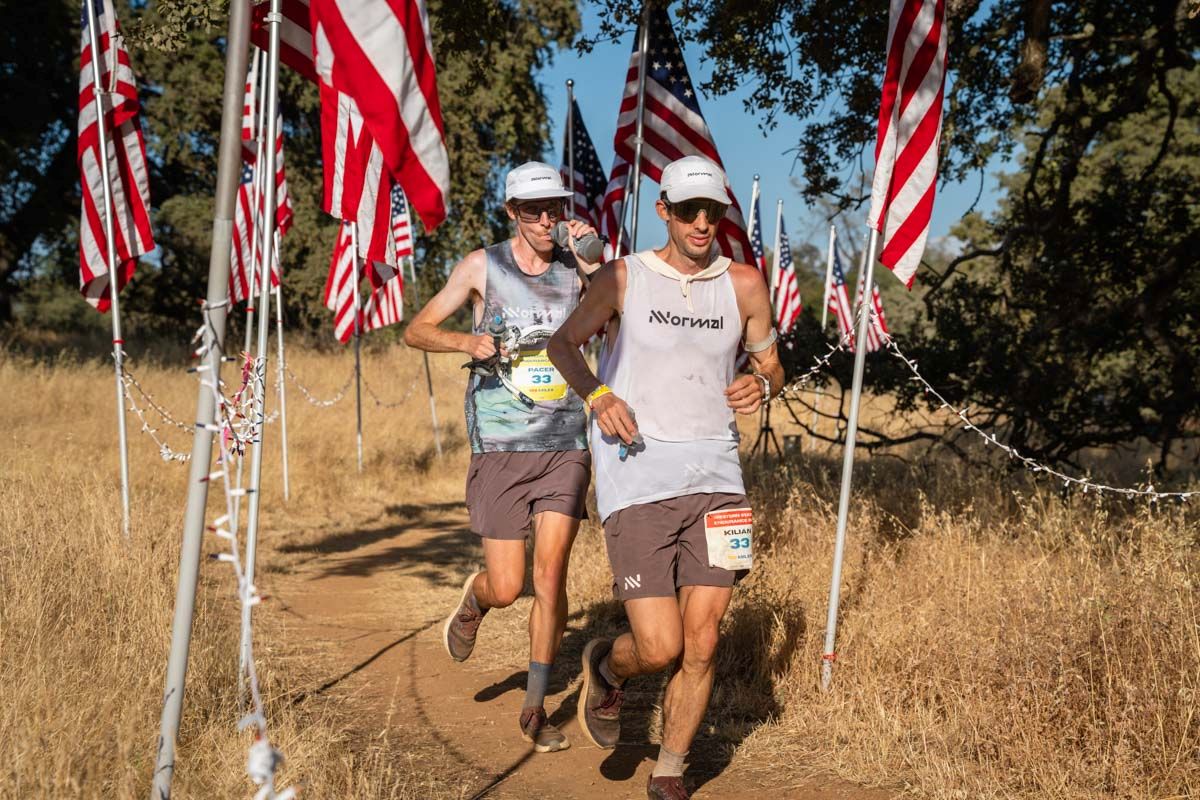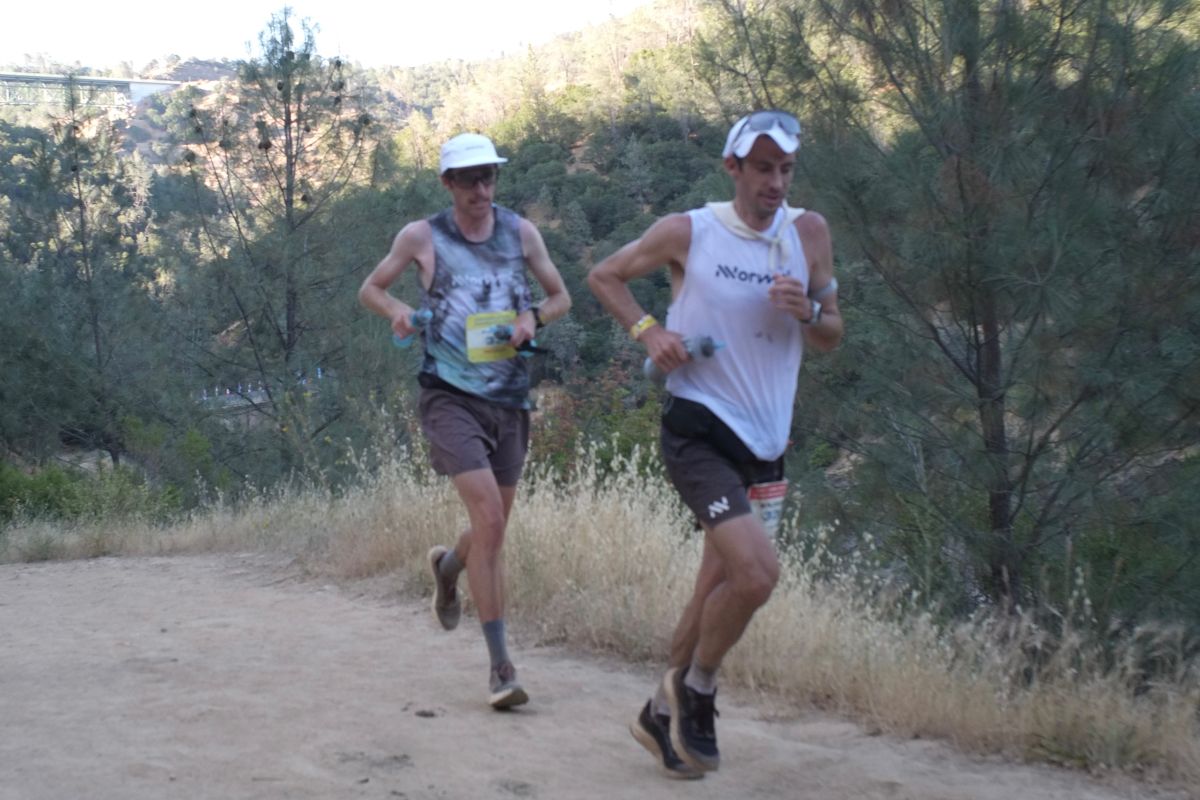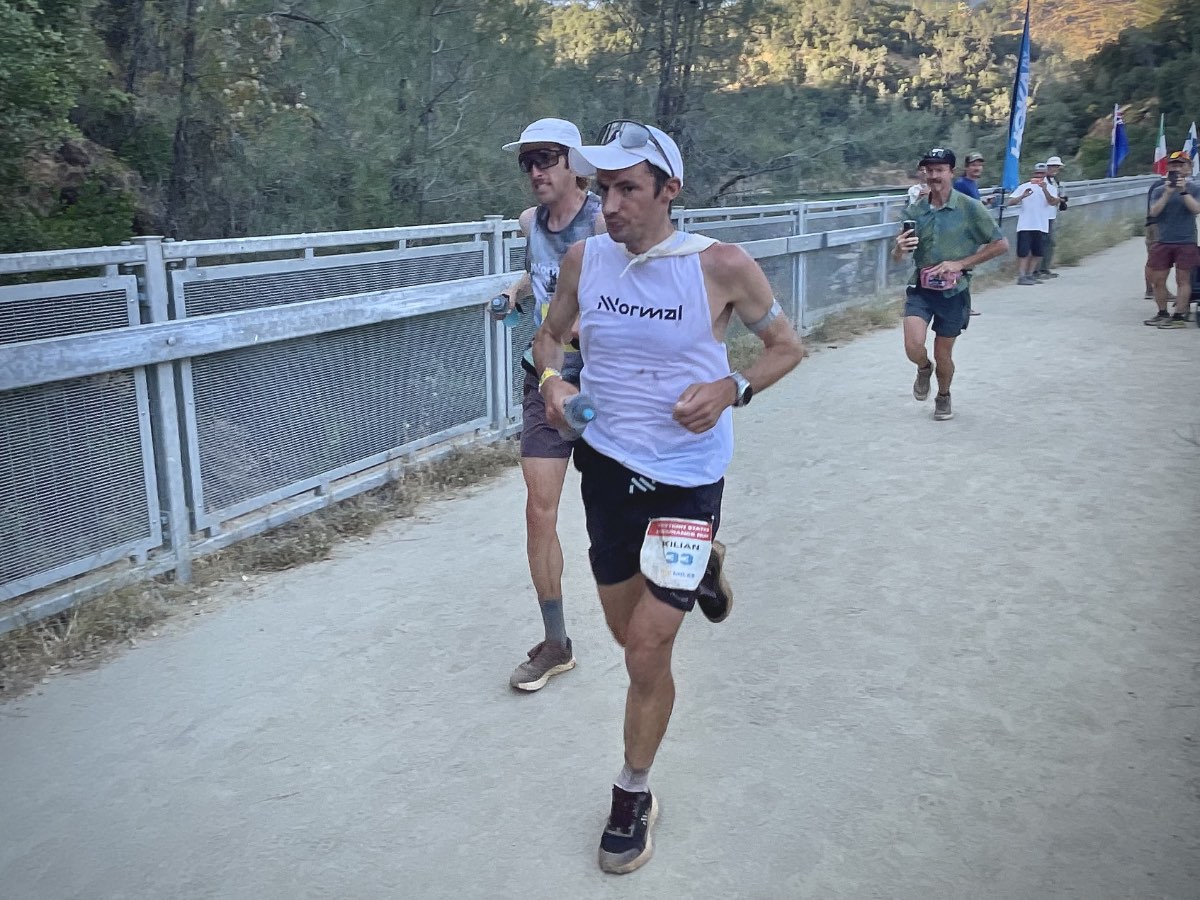In early June of this year, Anthony Fagundes opened his email after a run and saw the subject line.
“You’ve been selected,” the preview read.
He was excited: He had been entering several Strava challenges and was ready to finally claim his prize.
“Then I opened it,” Fagundes, a 35-year-old ultrarunner from the Sacramento, California, area, said during an interview on the Friday before this year’s Western States 100. “And I saw it, ‘Congratulations, you’ve been selected as Kilian’s pacer.’ And I was like, Holy crap.”
A Rare Opportunity
A few weeks before, several friends had sent him the Instagram post advertising that Kilian Jornet, one of the greatest off-road runners of all time, was seeking a pacer for his return to Western States. After answering a couple of questions and submitting his two best race results — a sixth-place finish at the Canyons 100k in 2022 and a win at this year’s Georgia Death Race — Fagundes waited as his friends pestered him for an update.
On June 10, the news came: From a pool of over 1,000 applicants, Fagundes had been chosen to pace Jornet, who was returning to run the Western States 100 for the first time since his victory 14 years ago.
“It was a sinking feeling a little bit, but not in a bad way,” said Fagundes, who has been a part of the race every year since 2009, either as a spectator or pacer for his friends. “It was just like, Oh my gosh: I actually got picked. This is wild. I don’t know how to how to really feel right now.”

Anthony Fagundes pacing Kilian Jornet to a third-place finish at the 2025 Western States 100. Photo: iRunFar/Eszter Horanyi
There was excitement, of course, but also shock and no small amount of disquiet. The gravity of the task before him slowly sunk in: He was going to be responsible for running the final 20 miles of the iconic race with Jornet, who has been one of the greatest athletes in the sport for nearly two decades and whose fitness leading up to Western States had been well-chronicled. It was both a dream opportunity and a terrifying proposition.
“Everybody says I should be fine, so I took it with a grain of salt,” Fagundes said just over 12 hours before the race was to begin, “and I’m slowly starting to believe them.”
Running with Kilian Jornet
He was right to. On Saturday, June 28, in the searing dry heat of California, Fagundes picked up Jornet at the Green Gate aid station at mile 80 and helped pace him to a third-place finish in 14:19:22, well more than an hour faster than his winning time in 2011.
“I’m not sure if Kilian could have run a better race,” Fagundes said, when we talked outside of the awards tent at the Placer High School track in Auburn on Sunday after the race, where the race had finished the night before, the relief in his voice palpable. When they started running together, Jornet was locked in a tight battle with eventual fourth-place finisher, Jeff Mogavero, and pursuing second-place finisher, Chris Myers. “He looked really in the zone,” Fagundes said of Jornet. “The pace stayed pretty much consistent. I felt like we were slowly chipping away, but there was no panic at all.”
Before transitioning to a four-year university, Fagundes attended American River College, a community college in Sacramento that coincidentally produced the pacers for all three male podium finishers at this year’s race: Fagundes for Jornet in third, Gus Gibbs for Myers in second, and Anthony Costales for Caleb Olson in first. “I’ve known them for 10-plus years now,” Fagundes said, “and we’re all out here pacing the podium yesterday.”
During a get-to-know-you run on the Monday before the race, when Jornet and Fagundes covered the final 10 miles of the race, they talked about everything but running: the California Gold Rush, railroads, the significance of the American River, how to avoid poison oak on the course. Fagundes, whose love for this course and area is unmistakable, was both Jornet’s tour guide and pacer.
When he ran with him during the race, though, Jornet led the conversation. “Kilian doesn’t need me to tell him how to run the race,” Fagundes said. “He knows what he’s doing. I’m just here for moral support and just to have someone there.” There were a couple times when Jornet asked about the location of the next aid station, and Fagundes felt useful when he could tell him. Perhaps their most in-depth conversation was about Caleb Olson’s attempt to break the course record.
It was through these conversations that Fagundes recognized something both simple and reassuring: For all of his otherworldly accomplishments, Jornet was a normal guy who just loves running. In fact, Fagundes used the word “normal” to describe him four times during our interviews, perhaps a fitting term given Jornet’s sponsor, the brand NNormal, which he helped found a few years ago.
“He’s just a regular guy who I’m pacing,” Fagundes said of his mindset, aware of Jornet’s greatness but trying to remain unintimidated by it. “In the moment, I’m here to do what you need to do.”
When he and Jornet crossed No Hands Bridge, with less than four miles to go, Fagundes felt the pace get faster. Oh, here it comes, he thought. Fagundes stayed with him. “It was a blast,” was his post-race summary.
Perhaps the only regret from the experience was that he didn’t get to run with Jornet to the finish. Jornet dropped all of his extra gear off at Robie Point, the final aid station at mile 99, and both men were unaware that the pacer was responsible for carrying it to the finish until an aid station volunteer told Fagundes as he was getting ready to run the final mile.
“And so I come back and grab it,” Fagundes said. “So, I’m carrying all my bottles and his bottles and all this stuff in both hands, and I turn around and he’s like 100 yards up the hill, and I’m like, I’m not catching him with all this stuff right now. He’s in this zone to go and try to catch second if possible. And I was like, You know what? I’ll just cruise it in from here. I did my job.”
Jornet, looking for his pacer post-race, apologized. “He’s like, ‘I was gonna’ just come back later that night to come get [the bottles and gear],’” Fagundes remembered. “And he’s like, ‘I’m sorry that you had to do that.’”
A Full-Circle Moment
Fagundes, smiling for nearly the entirety of our post-race chat, didn’t seem to mind. In 2011, he was a 21-year-old watching Jornet win Western States near the beginning of his historic career. Fourteen years later, he got to run it with him. “It’s a very full-circle moment,” he said, noting that Jornet’s win came as he was still in his track and cross-country running era and just curious about ultras. “Never in my wildest imagination would I be here, 14 years later, pacing the guy who I watched win in 2011.”
Call for Comments
What top runner would you like to have the opportunity to run with?


